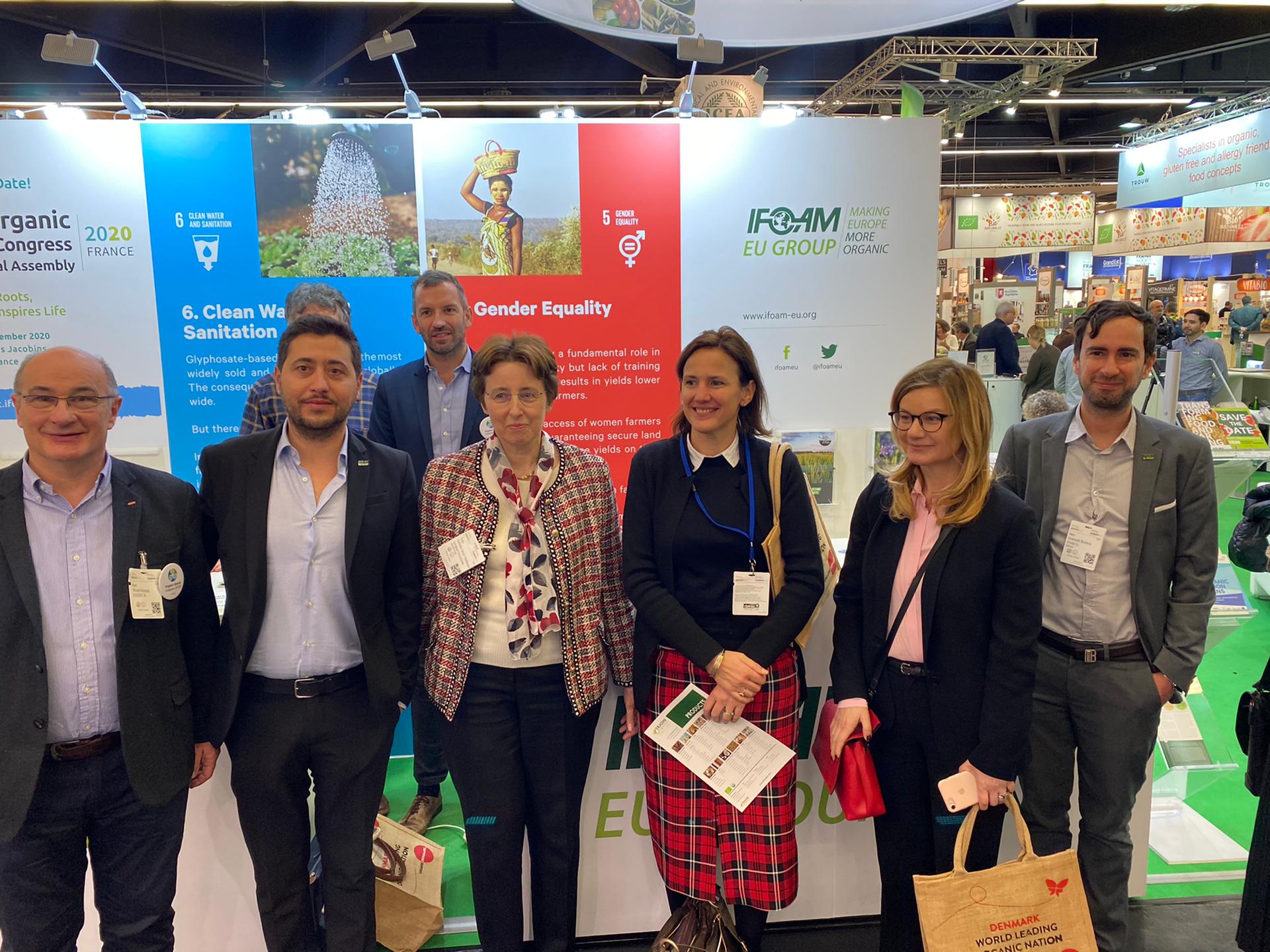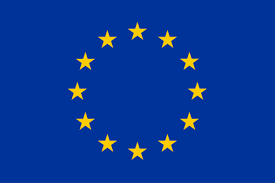
BIOFACH 2020
The World´s Leading Trade Fair for Organic Food, combined with VIVANESS, International Trade Fair for Natural and Organic Personal Care, is an important business event, an emotional event for the sector, and both a get-together and an opportunity for positioning.
Express your opinion and learn more about organic food and farming in the European Union! More details in the timetable below.
For more information visit www.biofach.de
Join and visit our stand at Hall 1 / 1-451.

Programme
To ensure a sustainable growth of the organic sector, natural inputs used for plant protection, fertilisation and livestock production must be available in an apt quantity and quality. So, it is vital to review the inputs allowed and find opportunities and barriers for the development of the sector. We will discuss the minimization and/or replacement of some inputs currently used in organic farming.
More: https://www.biofach.de/en/events/vortrag/how-much-natural-inputs-does-the-organic-sector-need/742136#top
The European Commission aims to launch a strategy on sustainable food along the whole value chain – the so-called “farm to fork” strategy – that would contribute to the EU’s sustainability objectives as well as the SDGs. This session will give an update on the state of play regarding this strategy, as well as explore how taxation can help towards reaching an EU sustainable food policy.
More: https://www.biofach.de/en/events/vortrag/the-role-of-organic-and-taxation-in-the-upcoming-european-strategy-on-sustainable-food/742151#top
The internet of things and blockchains could contribute to making the organic production chain more efficient and transparent. But the use of such technologies could also entail important socio-economic consequences and increased corporate control. Can digitalization happen in line with the principles of organic farming?
More: https://www.biofach.de/en/events/vortrag/the-digitalization-of-the-organic-food-chain-friend-or-foe/742150#top
Updates and debate on the opportunities and the challenges of the new EU organic regulation which will enter into force in January 2021. The new rules will apply in the EU but worldwide as well, given the quantity and number of products imported. The panel will be composed of policy – makers and representatives of the organic sector.
More: https://www.biofach.de/en/events/vortrag/policy-day-the-new-eu-organic-regulation/742128#top
Organised in collaboration with BIOFACH
The EU has engaged in a major CAP reform, which defines 40% of the budget and the level of support for organic farmers. There are positives, but negotiations put at risk the ambition to align the CAP with consumers expectations on the environmental impact of food production. IFOAM EU defends a transition towards agroecology and will provide an update on the CAP reform and the policy support in member states.
More: https://www.biofach.de/en/events/vortrag/will-the-new-common-agriculture-policy-cap-benefit-organic-producers/742126#top
How is the organic sector communicating the benefits of organic? In this session, experts share their insight on what they do to effectively engage audiences and why this matters! Presentations will address digital and print media, focusing on conveying positive messages. Audience members can engage with speakers in a fishbowl discussion to share their own campaigns and strategies.
More: https://www.biofach.de/en/events/vortrag/organic-delivers-what-and-how-do-we-communicate-across-media-channels/766993#top
Organised by IFOAM – Organics International and IFOAM EU
The session will provide insights into issues relating to organic seed in Europe, based on facts and the perspectives of farmers and seed companies collected through surveys within LIVESEED project. The session will also provide an update on recent developments on the implementation of the new Organic Regulation regarding Organic Heterogenous Material and Organic varieties.
More: https://www.biofach.de/en/events/vortrag/organic-seed-and-organic-heterogeneous-material-in-the-new-eu-organic-regulation-/766965#top
Organised by Organic Research Centre in collaboration with IFOAM EU
Organic agriculture’s approach to food production is built on a concept of health. The session will explore if this concept is a valid way of assessing different approaches to plant breeding. It will ask if, alongside issues of corporate control and risk, health and the integrity of any organism – plant, animal, man or the soil ecosystem – are effective guides to appropriate technologies in organic agriculture. Participants can expect an exploration of the conceptual bases of organic plant breeding and of new genetic engineering techniques and how these are applied in a rapidly changing world. More: https://www.biofach.de/en/events/vortrag/genome-editing-and-the-health-concept-in-organic-farming-co-existence-or-conflict/742123#top
Organised by Beyond GM in collaboration with IFOAM EU
With the new EU organic regulation entering application in 2021, new rules will apply to group of operators worldwide and, for the first time, in the EU as well. Updates and debate with policy-makers and representatives of the EU and worldwide organic sector.
More: https://www.biofach.de/en/events/vortrag/group-certification-new-organic-regulation-2021-regulatory-changes-for-the-certification-of-groups-of-ope/766973#top
Organised in collaboration with IFOAM Organics International
Get to know organic farmers from all over Europe and beyond and exchange on political and practical topics in an informal way.
Organised in collaboration with Naturland
Horizon Europe is the EU‘s new research and innovation programme for 2021-2027. It is expected that EUR 10 billion will be available for food, agriculture and environment. A representative from the European Commission will introduce Horizon Europe. A discussion will be held on Horizon Europe can help solving challenges of organic companies related to food safety and food and packaging waste.
More: https://www.biofach.de/en/events/vortrag/science-day-horizon-europe–innovation-opportunities-for-organic-companies/742127#top
The consumption of plastics in agriculture amounts yearly to 6.5MIL Tons. Food and beverage packaging are major contributors to plastic pollution. Proliferation of plastics in the environment is creating health and ecological problems. The organic sector recognizes the need to act. Expect an overview of innovative solutions used in the organic farming, processing & retailing industry.
More: https://www.biofach.de/en/events/vortrag/use-of-bioplastic-in-the-organic-industry-/766969#top
Session will be held in German with English translation provided.
Proposing healthy GMO-free products is a key reason why many consumers choose to buy organic. But the ability of the organic sector to guarantee GMO-free products is under threat by the possible deregulation of new genetic engineering techniques . The session will discuss what the stakes are for organic farmers and processors, provide an update on current bottlenecks in the implementation of the EU policy on GMOs, and propose possible ways forward for the organic movement.
More: https://www.biofach.de/en/events/vortrag/bio-bald-mit-gentechnik/742874#top
Organised by BOWL in collaboration with IFOAM EU


